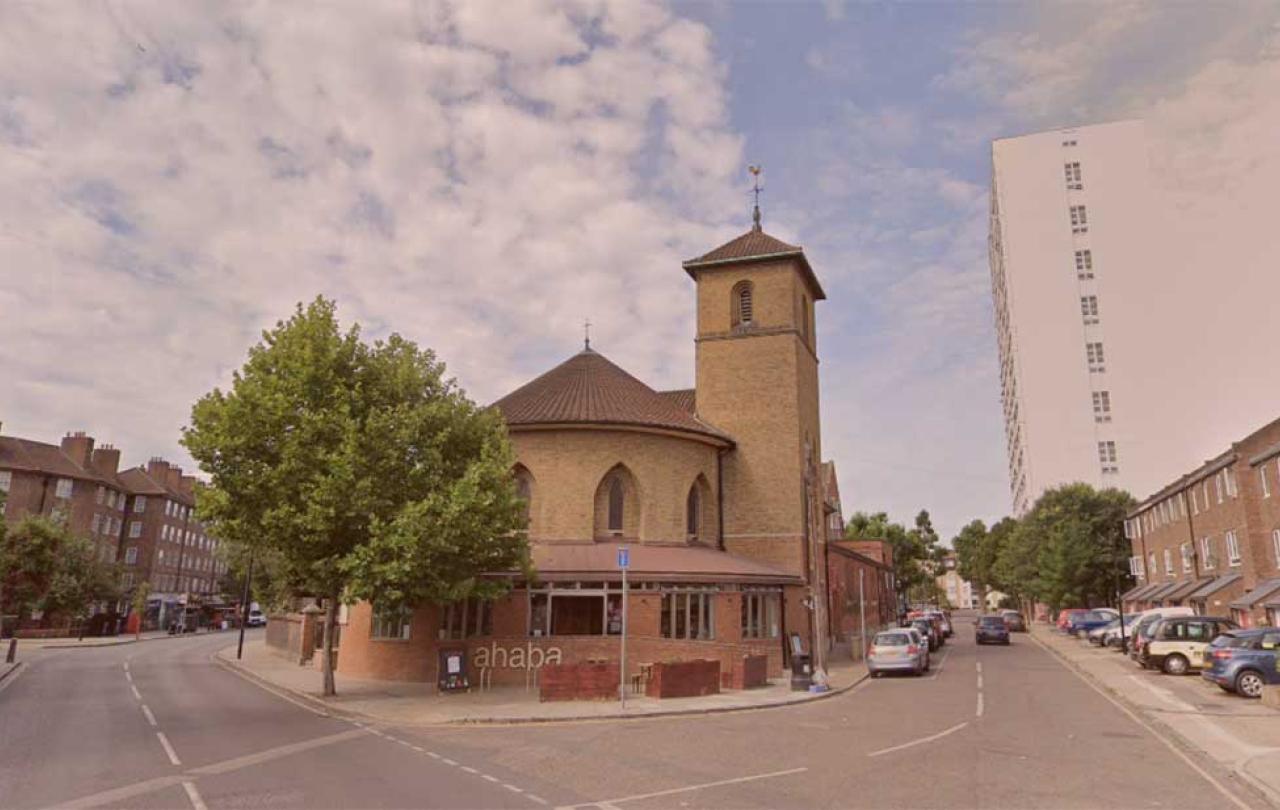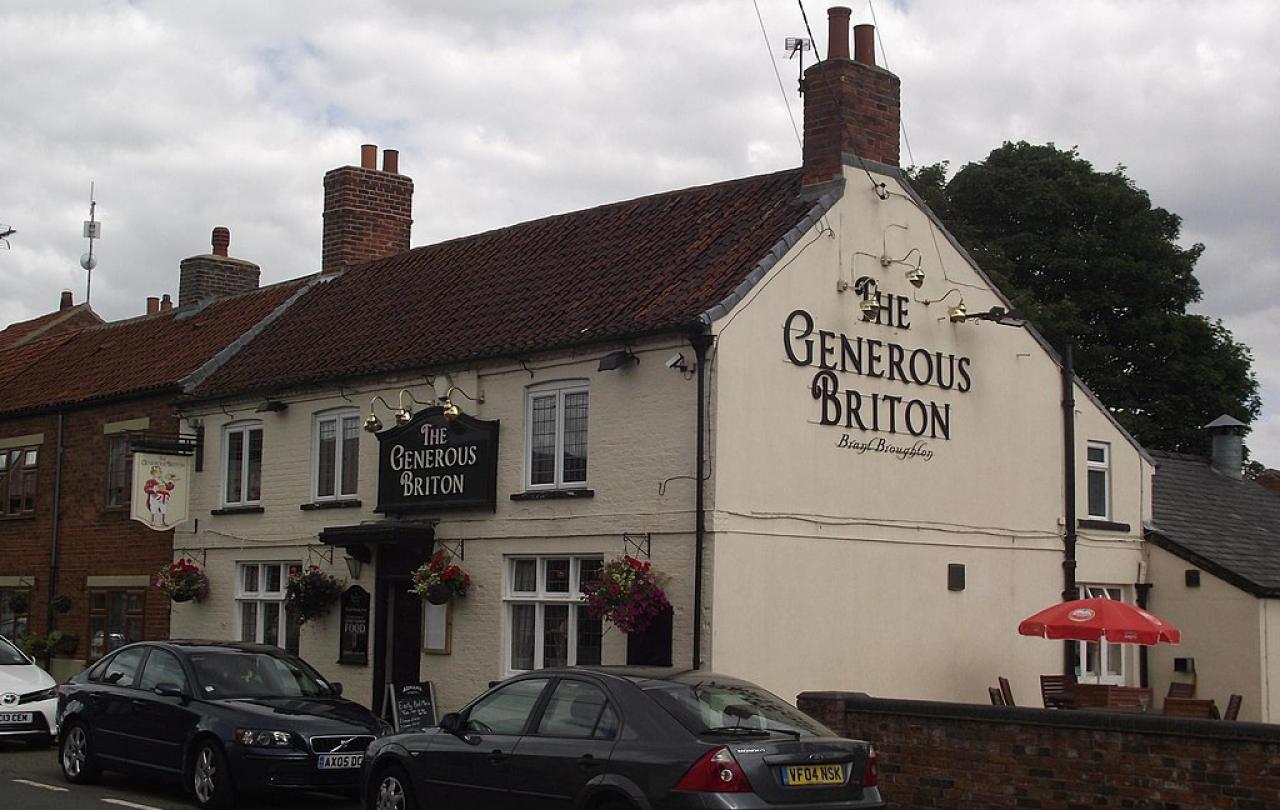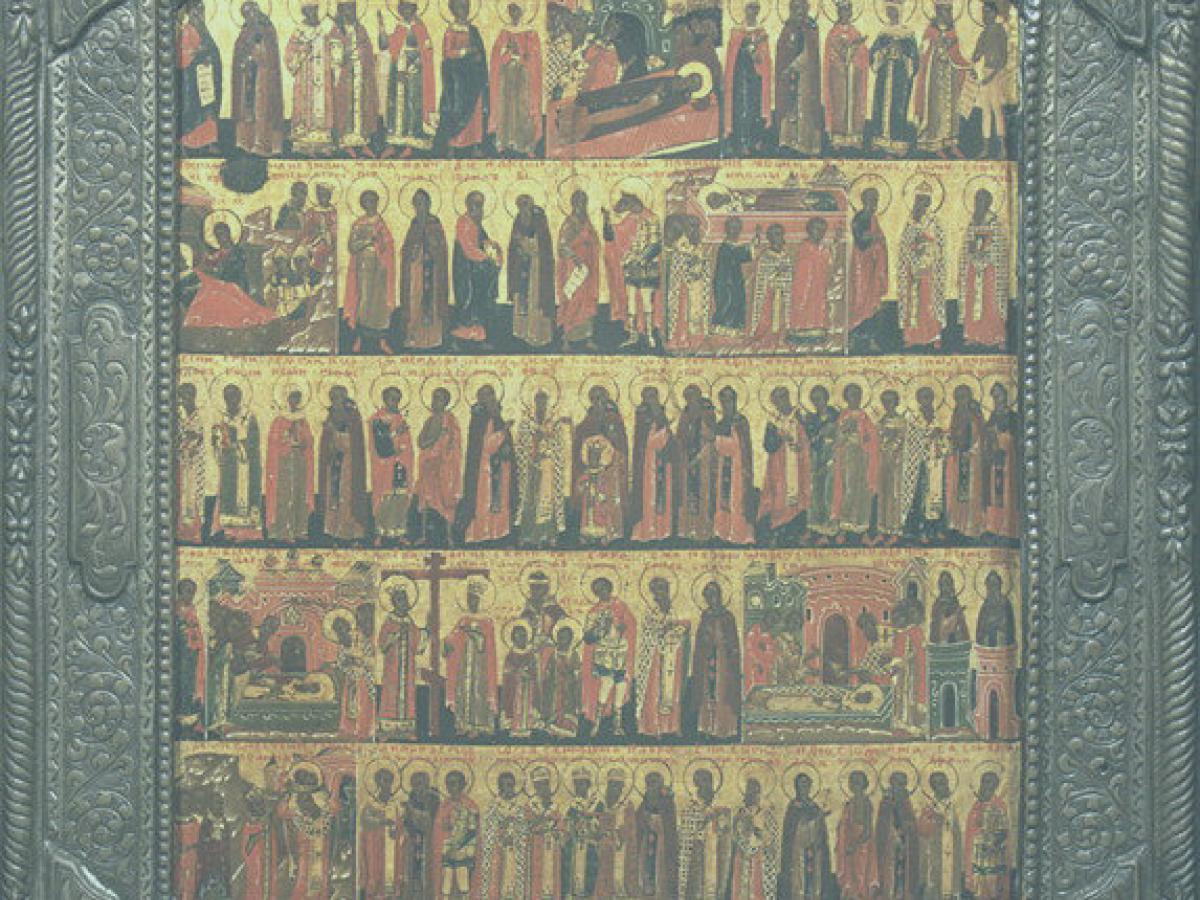
Feeling increasingly restless in the comfortable confines of West London, Rev. Cris and Beki Rogers, along with their family and seven others, decided to take on All Hallows Church and make Bow their home.
Fast forward thirteen years, and here’s Cris, sat with a coffee on the corner of an intersection in the heart of London’s East End, flanked on every side by blocks of flats and talking over the sound of heavy traffic: this is Cris Rogers’ Eden.
‘I love this place’, Cris delightedly declares, ‘I love the sounds, I love the smells, I love the people’.
And why wouldn’t he? This is the place where Clara Grant, the infamous ‘Bundle Woman of Bow', founded the Fern Street Settlement in 1907, ensuring that thousands of children were warm, fed, taught and loved.
It is where, in 1913, Sylvia Pankhurst established the East London Federation of Suffragettes, fighting for the rights of working women.
It is where, in 1985, the profoundly influential grime music artist, Dylan Kwabena Mills (perhaps better known as Dizzee Rascal) was born and subsequently raised.
It’s not hard to see why Cris describes his home as a place of profound justice, of resilient compassion, of innovative creativity and of rich community. In ways that we’re likely to be unaware of, we exist in the cultural ripple effect of places such as Bow. We owe them a great debt. And yet, there is, of course, another way to perceive and speak of Bow; a perception which places its focus upon slightly different identity markers.
It is, according to the Government’s Deprivation Indices, one of the most deprived communities in the UK. It has an above average crime rate, with a particularly high number of home break-ins. The percentage of home ownership in the area is 17 per cent, which is dramatically lower than the national average of 65.8 per cent. It is also a community that, because of the establishment and closure of St. Clements Mental Health Hospital, has an increased number of residents who live with mental illness and addiction.
It is true, in many ways, Bow struggles.
And it’s not that Cris and the community at All Hallows ignore these facts. On the contrary, they’re on a crusade against poverty in the area, working to eradicate it entirely. They’re also relentlessly pursuing justice and offering support to those in their community who need it most.
No, ignorance is not the source of Cris’ perspective - Jesus is.
I’m aware that such a sentence is in serious danger of sounding eye-rolling-ly twee, so allow me a moment or two to explain further.
The playwright himself took the stage, the author jumped inside the page, the architect inhabited the plans. Admittedly, it’s downright strange.
John, one of Jesus’ four biographers, opens his work with a prologue of epic proportions. Nestled into this prologue is this line –
‘The Word (that’s Jesus) became flesh and made his dwelling among us’.
In John’s original Greek writing, the words ‘made his dwelling’ can be more literally translated as ‘tabernacled‘, or rather, ‘pitched his tent among ours’. Author Eugene Peterson subsequently paraphrases it this way:
‘The Word became flesh and blood, and moved into the neighbourhood.’
The belief that God squeezed himself into the confines of humanity is certainly one of the more mystic elements of Christianity. The premise is that the playwright himself took the stage, the author jumped inside the page, the architect inhabited the plans. Admittedly, it’s downright strange.
And yet, this is the bedrock of what theologians call Incarnational Theology, a theology of Jesus’ embodied presence on the earth. Or, what Cris Rogers would call ‘moving in and living deep’. It's the astonishing idea that Jesus is present amongst, he is present alongside.
If the Incarnation happened, as Christians believe that it did, if Jesus really did pitch his tent next to ours – in that, he literally entered into time and place – then the implications of such aren’t only spiritual. The gospel (for want of a less Christian-ese word) is also a physical encounter, it is intent on changing one’s day, one’s week, one’s life, in tangible and practical ways. It must still be found in time and place. The church (as in, the people, not only the building) is one of the most obvious ways through which this could happen, as they take their lead from the one they represent and they themselves ‘move in and live deep’.
So, with that in mind, back to Bow.
For the residents of Bow, this thing called ‘Christianity’ is not a set of ideas that floats in the ether. On the contrary, it’s the people that teach them to speak, read, and write English in their ESOL lessons. It’s as tangible as the presence of the food banks, as obvious as the building on the intersection, as relentless as the recovery courses that run week after week.
Of the people who flow through All Hallows Church 40 per cent are in varying stages of recovery from addiction. It’s not surprising, therefore, that a major focus of Cris’ team is helping people through those often-complicated stages. Whether that be through the AA/NA courses (including one delivered in Russian), or visits to Pentonville Prison when addiction has taken hold once again and paved the way for behavioural mistakes to be made. After all, recovery from addiction is anything but linear.
And then there’s the recovery service. Every Tuesday evening the building hosts around 40 people who attend a specifically recovery-oriented service, held by Raf, the curate at All Hallows – who himself is ten years clean and sober. This service combines the twelve step programme with the Bible, week after week after week, building a community upon the power of these two liberating texts.
Moving in and living deep means that the team at All Hallows can take Jesus’ instruction to ‘love their neighbour’ completely literally. Even when that neighbour is breaking into their church’s coffee shop for the fourth time. It means that, together, those neighbours can love their home well and refute the notion that someone has made it when they finally have the means to move out of it. It means that Cris was right where he needed to be when someone walked past their church building on the way to take their own life, and decided to ask for help instead.
This is what incarnational theology looks like on the ground. This is how Christianity makes itself known in Bow. As Cris says, ‘we are called to love the hell out of our estates as no one else can’.
An East End kind of Eden
I’m telling this story through the vehicle of Cris, his family and his team, but this piece really isn’t about him or them; it is about Bow. A beautiful place filled with beautiful people. It’s a story of a group of people living in and learning from a community they know and adore. It’s a story of the mystic nature of incarnational theology looking like a Russian recovery course. It’s a story of being enchanted with one’s home.
I say this because, as Cris has observed, words matter. The story you tell about a place matters. This is the reason that they have re-written the words to a hymn from 1885, the third verse of which goes like this:
When through the woods and forest glades I wander
And hear the birds sing sweetly in the trees.
When I look down, from lofty mountain grandeur
And see the brook, and feel the gentle breeze.
Then sings my soul, My Saviour God to Thee,
How great Thou art, how great Thou art.
Beautiful as these words are, the story they tell to residents of places such as Bow, is that beauty is elsewhere, that God is more present, and somehow easier to find, in places that look nothing like their home. In order to counter that, these are the words that ring out from All Hallows on a Sunday morning:
When through the estate and shaded parks I wander
And see the shops and people in the streets
When I look up and see the tower blocks’ grandeur
And hear the cars and the sound of dancing beats.
Then sings my soul, My Saviour God, to Thee,
How great Thou art, How great Thou art.
There is a kind of Eden in the East End, in fact, there are numerous. And while I can’t speak for them all, I can say that Bow is one of the most special places I’ve ever found myself (with some of the best coffee).






